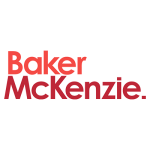By Hélène Van Steenberge, Olivier Van Den Broeke and Martin S Navias, Baker McKenzie
1 minute read |
In May 2018 the European Parliament and the Council adopted the fifth Anti-Money Laundering Directive. It provides a series of changes to the fourth Anti-Money Laundering Directive and the EU's legislative framework in relation to both anti-money laundering and terrorist financing. In Belgium changes are expected in relation to the AML Act (and its implementing royal decrees, circulars and regulations, where relevant). The Belgian legislator has already implemented most of the new requirements in relation to the register with information on beneficial ownership with the result that only limited further changes are expected in this regard. Belgium has until January 10 2020 to get in line with the new requirements. |
On May 30 2018, the European Parliament and the Council adopted the so-called fifth Anti-Money Laundering (AML) Directive.
The fifth AML Directive entered into force on July 9 2018 and must be transposed into the laws and regulations of the member states by January 10 2020.
It introduces a series of changes with respect to the fourth AML Directive and the European Union's legislative framework in relation to AML and terrorist financing in general. The reform was deemed necessary by the European legislator in light of recent terrorist attacks and the financial dealings uncovered by the Panama Papers, which brought to light emerging new trends, in particular regarding the way terrorist groups finance and conduct their operations.
Key changes of the fifth AML Directive
Broader scope of application
The scope of application of the EU's AML regime has been broadened to include custodian wallet providers and providers engaged in exchange services between virtual currencies and fiat currencies (which are coins and banknotes that are designated as legal tender and electronic money of a country and accepted as a medium of exchange in the issuing country). Such platforms provide for a certain degree of anonymity and can be used to conceal transfers. These service providers will now be subject to the EU's AML framework and will have to report suspicious activity and conduct customer due diligence.
The scope of the EU's AML regime is also extended to cover art dealers where the value of the transaction or a series of linked transactions amounts to €10,000 ($11,400 approximately) or more.
The fifth AML Directive also provides for certain further specifications as to the scope of application in relation to tax advisors and estate agents (which were already included in the scope):
As far as tax advisors are concerned, the fifth AML Directive specifies that this includes auditors, external accountants and tax advisors, and any other person that undertakes to provide, directly or by means of other persons to which that other person is related, material aid, assistance or advice on tax matters as principal business or professional activity.
As far as estate agents are concerned, the fifth AML Directive specifies that this also includes estate agents that are acting as intermediaries in the letting of immovable property, but only in relation to transactions for which the monthly rent amounts to €10,000 or more.
The fourth AML Directive has been implemented in Belgium through the Act of September 18 2017 on the prevention of money laundering and terrorist financing and the restriction on the use of cash (the AML Act), its implementing royal decrees, circulars and regulations. The Belgian legislator will have to amend the scope of application of the AML Act, bringing the above mentioned service providers in scope of Belgium's AML and terrorist financing regime.
Enhanced customer due diligence when dealing with high-risk third countries
|
|
"The scope of application of the EU’s AML regime has been broadened to include custodian wallet providers and providers engaged in exchange services between virtual currencies and fiat currencies" |
|
|
The European Commission keeps a list of all jurisdictions which are considered as high-risk third countries. This list includes, among others, Afghanistan, Iraq, Syria and the Democratic People's Republic of Korea. The fifth AML Directive requires enhanced customer due diligence with respect to business relationships or transactions involving high-risk third countries. Obliged entities will have to apply the following enhanced customer due diligence measures:
Additional information will need to be obtained on the customer, the beneficial owner(s), the intended nature of the business relationship, the source of funds and source of wealth of the customer and of the beneficial owner(s), the reasons for the intended or performed transactions. Approval of senior management for establishing or continuing the business relationship will need to be obtained as well and enhanced monitoring of the business relationship will have to be conducted by increasing the number and timing of controls applied, and selecting patterns of transactions that need further examination.
Additional elements of enhanced customer due diligence measures will need to be applied. Enhanced reporting mechanisms or systematic reporting of financial transactions will need to be introduced, and business relationships or transactions with natural persons or legal entities from high-risk third countries will need to be limited.
The AML Act currently only foresees that increased vigilance must be applied in respect of relationships with customers established in high-risk third countries, without further specification. It is therefore expected that the Belgian legislator will make the necessary amendments to the AML Act in order to reflect these new enhanced customer due diligence requirements.
Threshold for customer due diligence in respect of prepaid cards lowered to €150
The fifth AML Directive lowers the threshold for customer due diligence in respect of prepaid cards from €250 to €150, mainly to deny terrorists this means of financing their operations. The derogation to this identification requirement does not apply in the case of redemption in cash or cash withdrawal of the monetary value of the electronic money where the amount redeemed exceeds €50, or in the case of remote payment transactions where the amount paid exceeds €50.
The AML Act currently provides for thresholds of €250 and €100 respectively and will need to be amended accordingly by the legislator in order to reflect these new thresholds.
Beneficial ownership information made publicly accessible
The fourth AML Directive provides for the obligation to register beneficial ownership information about corporate and other legal entities on the one hand and about trusts and similar legal arrangements on the other hand, but only where such trusts and similar legal arrangements would generate tax consequences. The fifth AML Directive maintains such a distinction, but further specifies that beneficial ownership information should now also be registered for all types of trusts and similar legal arrangements, and not only for those that generate tax consequences.
Additionally, the fifth AML Directive requires the register with information on beneficial ownership (UBO register) to become publicly accessible. The requirement under the fourth AML Directive to show a legitimate interest for persons that wanted to access the UBO register has been abandoned for corporate and other legal entities. For trusts and similar legal arrangements, a legitimate interest (to be defined by the member states) needs to be demonstrated to access the UBO register.
The data to be registered in the UBO register must be limited to certain essential data. Also, in exceptional circumstances, where access to the UBO register would expose the beneficial owner to a disproportionate risk, risk of fraud, kidnapping, blackmail, extortion, harassment, violence or intimidation, or where the beneficial owner is a minor or otherwise legally incapable, member states may provide for an exemption from such access to all or part of the information on the beneficial ownership on a case-by-case basis.
Also, member states may choose to make the information held in the UBO register available on the condition of online registration and the payment of a fee, which may not exceed the administrative cost of making the information available, including costs of maintenance and developments of the register. Member states must also ensure that the UBO registers are interconnected via the so-called European central platform, in order to promote international cooperation in this respect.
The rules in relation to the UBO register of the fourth AML Directive have been implemented in Belgium in articles 73 to 75 of the AML Act and in a separate royal decree of July 30 2018 determining the operating procedures of the UBO register (UBO decree). The UBO decree entered into force on October 31 2018 and determines the operating procedures of the UBO register by, among others, detailing which information is to be transmitted to the UBO register, who must register this information on behalf of the obliged entities concerned, who will have access to the information, which exemptions are available to restrict the disclosure of the registered information etc. Although the UBO decree already entered into force, obliged entities have until March 31 2019 to prepare their first filings.
The UBO decree already implements the new provisions of the fifth AML Directive in relation to the UBO register. This means that the Belgian legislator is well ahead of timing as far as the implementation deadline of January 10 2020 is concerned (at least for the parts in relation to the UBO register). The UBO decree, inter alia, already provides that all types of trusts must report beneficial ownership information to the relevant authorities (where the fourth AML Directive was limited to trusts that generate tax consequences), that no legitimate interest needs to be demonstrated for public access of the UBO register in relation to corporate and other legal entities (where this was required under the fourth AML Directive), albeit that a legitimate interest is still required in relation to trusts and similar legal arrangements.
However, certain specific (and technical) modalities of the fifth AML Directive in relation to the UBO register are yet to be implemented in Belgium. For example, the modalities in relation to the payment of a fee to access the UBO register are not yet provided and need further implementation by the competent minister.
|
|
"The fifth AML Directive lowers the threshold for customer due diligence in respect of prepaid cards from €250 to €150, mainly to deny terrorists this means of financing their operations" |
|
|
It was also left to the member states to define the concept of legitimate interest, both as a general concept and as a criterion for accessing beneficial ownership information in their national law. The Belgian legislator did not define the concept of legitimate interest as such, but rather clarified that the concept must relate to the fight against money laundering, the financing of terrorism and the related underlying criminal activities. For natural persons, the legitimate interest can be demonstrated by evidencing that activities are being conducted that relate to the fight against money laundering, the financing of terrorism and the related underlying criminal activities. For legal entities, the legitimate interest can be demonstrated on the basis of its corporate purpose or any activity that relates to the fight against money laundering, the financing of terrorism and related underlying criminal activities. It is not clear whether further guidance of the legislator or the regulator on this concept can be expected. The Belgian legislator also opted to provide for an exemption to the public access to the UBO register where access would expose the ultimate beneficial owner to a disproportionate risk, risk of fraud, kidnapping etc. This exemption has been implemented in article 16 of the UBO Decree.
Belgium also opted to set the information retention period of the UBO register to 10 years, starting from the moment when the obliged entity has lost legal personality or has definitely ceased its activities. The fifth AML Directive only provided for a minimum retention period of five years.
Conclusion
The fifth AML Directive makes some important changes to the European Union's framework in relation to anti-money laundering and terrorist financing:
Custodian wallet providers and providers engaged in exchange services between virtual currencies and fiat currencies are now in-scope and will have to comply with customer due diligence measures and will have to report suspicious activity.
The threshold for customer due diligence in respect of prepaid cards has been lowered from €250 to €150.
Enhanced customer due diligence measures will have to be taken with respect to business relationships or transactions involving high-risk third countries.
The UBO register becomes publicly accessible.
In Belgium, changes are expected with respect to the AML Act (and its implementing royal decrees, circulars and regulations, where relevant) to properly reflect the new requirements of the fifth AML Directive. The Belgian legislator already proactively implemented most of the new requirements in relation to the UBO register, meaning that only limited further changes are expected in this regard. Belgium has until January 10 2020 to get in line with the new requirements.

|
Hélène Van Steenberge Lawyer Baker McKenzie (Brussels) |

|
Olivier Van Den Broeke Lawyer Baker McKenzie (Antwerp) |

|
Martin S Navias Baker & McKenzie (London) |

